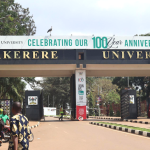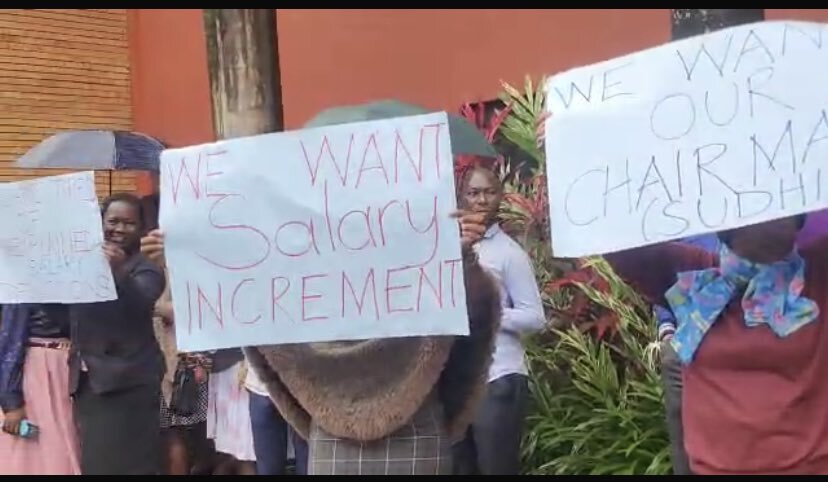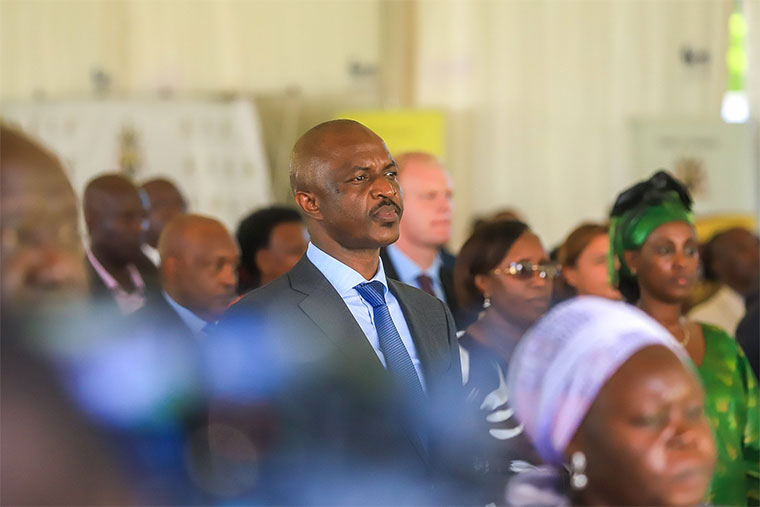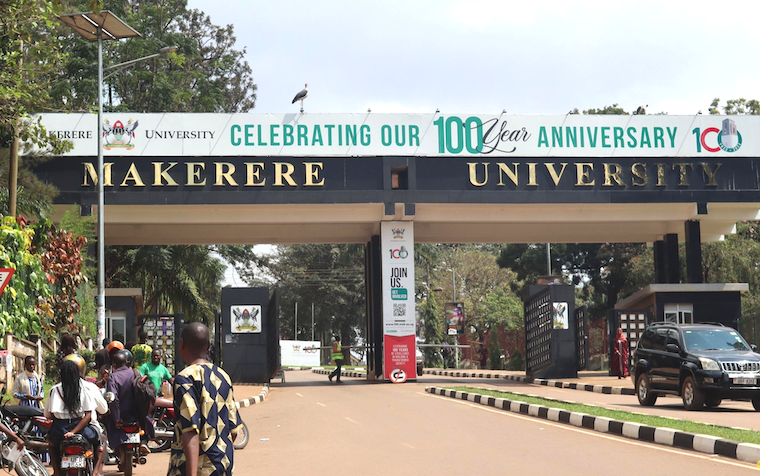The High court has adjourned a case in which the government sued 80 people for refusing to accept compensation offered to them to give way for the construction of the East African Crude Oil Pipeline (EACOP).
The affected people own 102.5 acres of land in Lwengo, Kyotera and Rakai districts.
The case which is being heard in Masaka was adjourned to September 16, 2024, because Justice Rolex Tweyanze, the resident judge at the Masaka High Court who is supposed to hear the case, is on leave.
However, the judge has been ordered to return to work so that the case can be heard on the above-mentioned date.
The lawyers of the affected people want to be given at least two weeks to file responses to the application filed by the government.
“This means that the affected people and their lawyers have only two working days within which
to file their responses,” Aminah Acola, one of the lawyers who was at court with the affected
people, says.
Nearly 70 people belonging to the families that were sued by the government including women, the
elderly, Persons with Disabilities (PWD) and men, attended court yesterday.
Among them was a 102-year-old woman from Mutukula in Kyotera district. It was unclear to her why her family was sued. Other affected people such as Sarah Namatovu whose family was sued for lacking a legal representative also expressed confusion.
Namatovu said: “NewPlan came to our home in 2018 and informed us that the death certificate
we have was not fit for purpose. This is because the certificate was not issued by NIRA [National Identification & Registration Authority]. NewPlan promised to support us in acquiring the right death
certificate so that we could process letters of administration and get compensation, but they never
did. The next thing we heard is that we had been sued because we rejected compensation, yet we
did not.”
On behalf of the EACOP project developers, NewPlan implemented some of the activities under
the EACOP Resettlement Action Plan (RAP).
Dickens Kamugisha, the CEO of AFIEGO said if affected people could not access their compensation yet the Uganda Constitution of 1995 says that government cannot take possession of citizens’ property prior to compensation, then government will legally and morally have no right to use the land taken from the families without compensation.
“Any company that claims to respect human rights and comply with international standards has no business using land taken from poor and vulnerable people without compensation. It is in TotalEnergies and CNOOC’s best interests therefore to desist from using land taken for the EACOP from people amidst grave acts of unfairness,” Kamugisha said.
Among other issues, the government wants to be granted vacant possession of the affected people’s land so that it may be used for the EACOP project activities; be granted eviction and demolition orders against the affected people; be discharged from any liabilities arising out of any claim and/or order arising out of
the orders being sought by government; to provide for costs of the case to be paid by the affected 80 land owners or estate administrators or estate beneficiaries.







